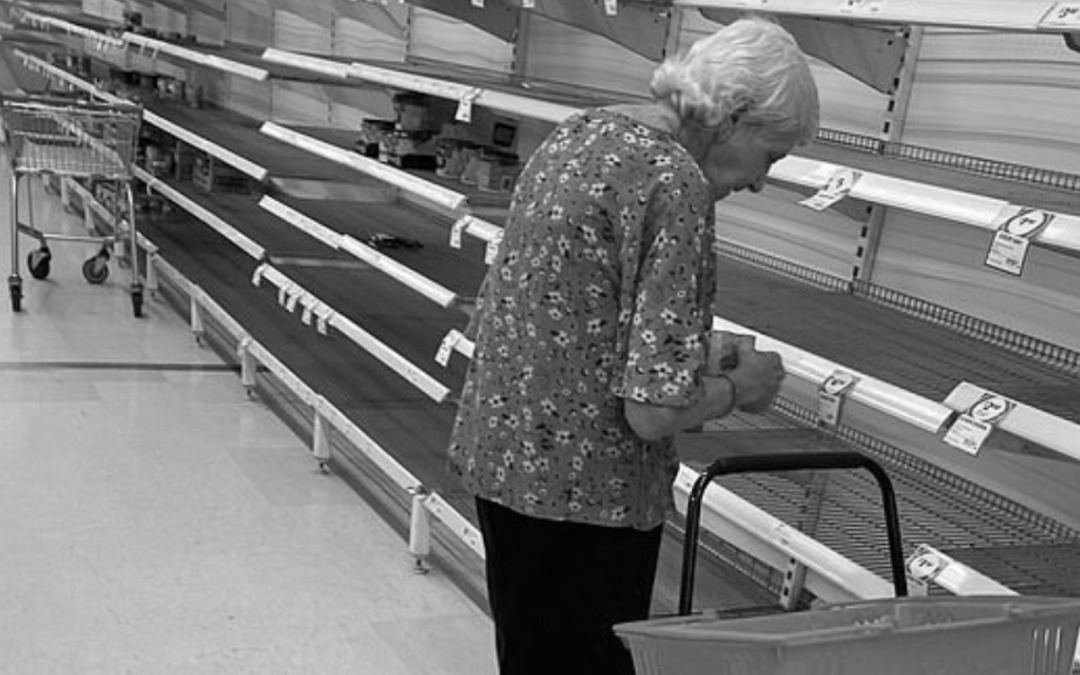Generosity Redeemed – A Theology of Generosity
GENEROSITY REDEEMED
The way we understand and practice generosity is rooted in our theological perspective. Our theology of generosity, in turn, shapes how we use our resources, live our lives, and steward God’s blessings.
Generosity becomes clearer when we possess a theological understanding of God and His glorious riches.
Many Christians have a shallow, un-enchanted vision of generosity (I suffer from this as well). Often, generosity is a guilt-driven duty or a sentimental desire for psychological well-being or a reciprocal relationship with God, as if God needs anything from us. The deadliest perspective links giving to salvation. Reader beware, dead works will not result in eternal life (see Ephesians 2:8-9). Modern Christians, especially in America, seem to have unintentionally embraced ideas influenced by pragmatism and the Enlightenment regarding generosity. Additionally, adding a dose of moralism renders an unbiblical concoction.
The argument is commonly something like: “The Bible encourages giving as the right thing to do, promoting the expansion of God’s Kingdom while helping those in need. Tax benefits are a bonus!” While not entirely wrong, it’s incomplete and may be misguided. Some Christians use out-of-context proof-texts and persuasion tactics to motivate giving, which can be confusing or manipulative. What’s missing is a full-orbed Kingdom vision and a robust theology of generosity.
Theology, seen through a biblical lens, is more than just knowing things about God. Theology is about intimately knowing God Himself. Knowing God serves as the cornerstone of all Christian faith and activities, including stewardship and its handmaiden, generosity.
Let’s explore a biblical vision of generosity by asking questions of Holy Scripture.
In the beginning, who created?
At the cross, who died?
At the grave, who is risen?
Who is seated at the right hand of the Father?
At the conclusion of human history, who restores all things?
Who is God?
Who am I?
What are God’s purposes?
What is Jesus Christ Lord over?
Whether we realize it or not, our actions and choices in life inevitably reflect our underlying theological and worldview commitments. The way we understand and practice generosity is rooted in our theological perspective. Our theology of generosity, in turn, shapes how we use our resources, live our lives, and steward God’s blessings. Therefore, we need to make sure we have a good theology.
God created the world and deemed it “good.” This signified its intrinsic value because God is creator and God is the source of all good. This declaration demonstrates the richness of the potential embedded in creation, waiting to be discovered and developed. Entrusting man with dominion, God commanded the care and cultivation of Earth’s latent resources for His glory and the good of humanity. We hear echos in the greatest and second greatest commandments.
Jesus answered, “The most important (commandment) is, ‘Hear, O Israel: The Lord our God, the Lord is one. And you shall love the Lord your God with all your heart and with all your soul and with all your mind and with all your strength.’ The second is this: ‘You shall love your neighbor as yourself.’ There is no other commandment greater than these.” – Mark 12:29-31
Dominion
Dominion in the Bible is often overlooked or misunderstood. It is not about exploitation or oppression rather, theologically, it is stewardship, responsibility, God-given authority, and accountability to God, all directed toward His purposes. Properly understood, dominion is God-centered, not man-centered. As image-bearers, we share in God’s moral character traits, albeit as finite and fallen creatures. All humans are assigned a time and place to serve God’s purposes, exercising dominion over what God entrusts to us. In doing so, we reflect His moral character and bring His glory to the world He created and sustains. Dominion is humanity’s responsible and caring authority under God’s ultimate reign. I believe that exercising Godly dominion is a proper response to God’s grace, kindness, and goodness to us by glorifying Him and enjoying Him.
The first statement of the Westminster Shorter Catechism tells us the chief duty of man and what were created for (purpose).
Q. What is the chief end of man?
A. Man’s chief end is to glorify God, and to enjoy Him forever.
(The Westminster Shorter Catechism)
If God is the creator of all things, it means he holds the title deed of every atom in the entire universe. There isn’t anything in all of creation that God doesn’t own, including you and me. The air you breathe, the food you eat – it all belongs to God. He is the one who enables and allows you to breathe, eat, and even understand this sentence as you read it.
A Principle v. A Person
At the foundation of a theology of generosity, you won’t find just a biblical principle; rather, you’ll encounter a person—Jesus Christ. A distinct Christian life will be shaped and guided by principles of generosity that flow from knowing Jesus Christ. Remember, theology is knowing God, not just knowing things about Him.
Only when we retrieve and recover the riches of Christian faith in Christ as the ultimate gift from God, can we undertake any real form of generosity.
The one true definition of generosity, from which all other meanings flow, is God’s definition. Jesus Christ embodies this definition—He is the living and holy reality of generosity. At the center of all reality, Jesus stands as the Truth. When we behold Jesus, we see God’s Christ, God’s Word, God’s world, and God’s spirit, all given as glorious gifts to man. You and I have nothing we didn’t receive.
I encourage you to work out the implications of this in your own life (which is a gift). Generosity flows from a fuller theological understanding of God and His glorious riches.
“Whoever is of God hears the word of God.” – John 8:47
Therefore, through our generosity, we can join the likes of the Apostle Paul and, “proclaim the kingdom of God and teach about the lord Jesus Christ with all boldness and without hinderance.” – Acts 28:31
God’s Generous Gift
God has given us everything we need by granting us His divine power, His great promises, and His divine nature to enable our efforts to act on the knowledge of Him (theology). We benefit, partake, and develop the gift of God’s abundant power through Christ our Lord and Savior. Our knowledge of God’s divine power and promises is a gift. So is the ability and opportunity to utilize that power. When we receive the gift of faith, God supplies His power to enable us to supplement it with virtue and knowledge.
In conclusion, one important aspect of the Christian tradition is the spiritual discipline of generosity that contributes to the believer’s sanctification. In other words, when we exercise generosity, we are being conformed to the likeness of Christ’s character.
Notice, I didn’t mention money once in this post. Now, go and workout the implications of a theology of generosity in your life, watch God work and watch the world change.
“Praise God, from whom all blessings flow;
Praise Him, all creatures here below;
Praise Him above, ye heav’nly host;
Praise Father, Son, and Holy Ghost!Praise God the Father who’s the source;
Praise God the Son who is the course;
Praise God the Spirit who’s the flow;
Praise God, our portion here below!”
– Thomas Ken (1637-1711)
Please share your insights by commenting below this post.
I launched the Forge Room Foundation in order to equip Christians to understand our cultural moment and respond with a biblical worldview perspective. We have a end-of-year fundraising goal of $50,000. There is a $7,500 matching challenge in play! This will allow us to quip and mobilize people for Kingdom action. Please consider us in your year end generosity plans. Learn more and give here…





